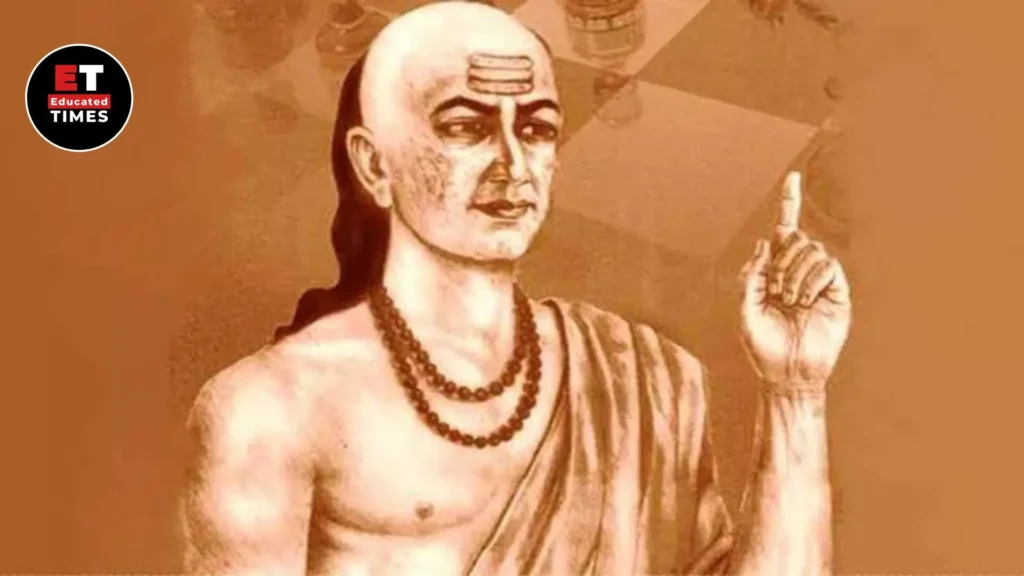Chanakya was the mastermind behind the establishment of the Mauryan Empire in ancient India. He was a learned man who understood the intricacies of politics, economics, and diplomacy, making him an expert in governance. His teachings have been immortalized in the form of Chanakya Niti, which is a collection of aphorisms and guidelines on how to lead a successful life. In this article, we will explore how Chanakya’s teachings can be applied to help students crack competitive exams.
Breaking down the principles of Chanakya Niti:
- Strategy: The first principle of Chanakya Niti is about strategy. Chanakya believed that one should always have a plan in place before they embark on a mission. This applies to students as well. When preparing for competitive exams, students should have a clear plan of which subjects to study, what topics to cover, and how much time to devote to each topic.
- Preparation: The next principle is about preparation. Chanakya believed in preparing oneself thoroughly before venturing out to achieve one’s goals. Similarly, students should take their preparation seriously and be thorough in their studies. They should not just focus on memorizing facts and figures but also try to understand the underlying concepts.
- Time Management: Chanakya Niti stresses the importance of time management. Students should develop a schedule and stick to it. They should prioritize their tasks based on their importance and urgency and allocate time accordingly. Students should also avoid multitasking and focus on one task at a time.
- Self-Discipline: Another important principle is self-discipline. Chanakya believed that self-discipline is essential for success. Students should be disciplined in their studies, avoid distractions, and stay committed to their goals.
- Critical Thinking: Chanakya Niti emphasizes the importance of critical thinking. Students should develop a questioning attitude and not just accept what is presented to them. They should evaluate the information they receive, analyze it, and draw conclusions based on facts.
- Networking: Chanakya believed in the power of networking. Students should network with their peers, teachers, and mentors. They should exchange ideas and learn from each other’s experiences. This can help them gain new perspectives and insights.
- Flexibility: Finally, Chanakya Niti highlights the importance of flexibility. Students should be open to new ideas and be willing to adapt to changing circumstances. They should be able to pivot their strategies if they are not working and try new approaches.
How to apply Chanakya Niti to crack competitive exams:
- Set a goal: The first step is to set a goal for the exam. This goal should be specific, measurable, achievable, relevant, and time-bound (SMART). For example, “I want to score 90% in the upcoming XYZ exam in 3 months.”
- Develop a plan: Once the goal is set, the next step is to develop a plan. This plan should cover all the topics that are part of the exam syllabus. Students should allocate time for each topic and create a study schedule.
- Prioritize: Students should prioritize their tasks based on their importance and urgency. They should focus on the topics that carry more weightage and are more challenging.
- Be disciplined: Students should be disciplined in their studies. They should avoid procrastination and stick to their study schedule. They should also take breaks at regular intervals to avoid burnout.
- Analyze and evaluate: Students should analyze the information they receive and evaluate it critically. They should go beyond memorization and try to understand the underlying concepts.
- Network: Students should network with their peers, teachers, and mentors. They should exchange ideas and learn from each other’s experiences.
- Be flexible: Students should be open to new ideas and be willing to adapt to changing circumstances. They should be able to pivot their strategies if they are not working and try new approaches.
Conclusion:
In conclusion, Chanakya Niti provides valuable lessons that can help students crack competitive exams. Students should develop a strategy, focus on preparation, manage their time, be disciplined, think critically, network with others, and be flexible. These principles can help students not only succeed in exams but also in life

